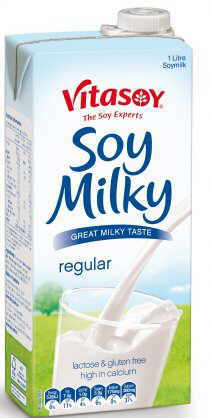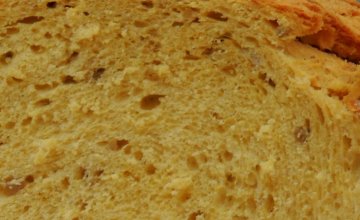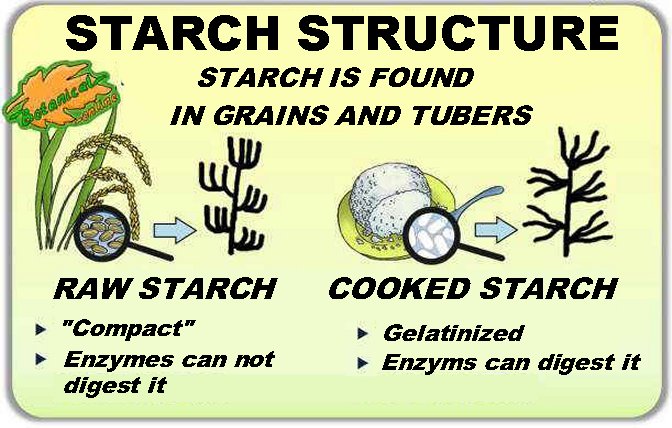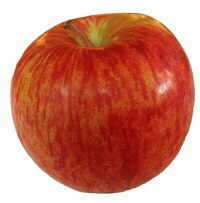Contents
Edible and therapeutic properties of soymilk
Benefits of soy milk: A substitute for cow milk
 Soymilk is obtained from the seeds of the soybean. It is especially suitable for those people who do not tolerate milk or who cannot take it because they have intolerance to lactose, a component that soy food does not have. Furthermore it can serve to avoid sinusitis due to the intolerance of cow milk.
Soymilk is obtained from the seeds of the soybean. It is especially suitable for those people who do not tolerate milk or who cannot take it because they have intolerance to lactose, a component that soy food does not have. Furthermore it can serve to avoid sinusitis due to the intolerance of cow milk.
It is because a good substitute for those people who has this food allergy. In addition to soy milk, we can point out all the products made from it (yogurt, tofu, soya drinks, creams, butters, vegetables, etc.).
In fact, soy milk is more digestible than cow’s milk. The reason is that animal milk needs lactase enzyme to digest lactose in milk. These enzymes are found in the right quantity in infants, but as babies stop sucking, they are lost which causes poor digestion of milk which results in the form of flatulence, swollen belly, etc.
Among the adult population there are more people who can not tolerate milk than those who do not tolerate it. On the other hand, the level of tolerance often depends on the culture to which we belong to. So, for example, the inhabitants of northern Europe are those with a higher tolerance level, while those of Asia and America are the least tolerant.
Therefore, for all of them and the rest, it is very appropriate to drink soy milk. This food agrees all very well: young children and elderly people, healthy people or those who are sick.
Other very interesting properties of soy milk
Soy milk for bones health

Besides the fact that soy milk contains calcium, soy milk is often fortified with this mineral. In any case, it is important to buy one that contains calcium added. Soy milk provides all the properties of this mineral (see more details) We must not forget the importance of calcium in people with osteoporosis, especially menopausal women or older men.
It should be added that, in addition to calcium, an isoflavone called daidzein, also helps to prevent bone decalcification because it decreases the loss of calcium from bones and prevents it to be expelled out through the urine.
Eating this food is usually a good way to keep bones healthy and prevent fractures. One serving of 250 g of soymilk provides 50% of the daily requirement of calcium. We must not forget that it is very rich in phosphorus, a mineral that is very important for the body and contributes to bone formation after calcium
Soy milk for your circulatory system
Soy is a very interesting food for circulation. It has been proved that the replacement of animal protein for this food may reduce by up to 20% the rate of cholesterol in blood.
The isoflavone genistein not only helps lower “bad” cholesterol (LDL) and triglycerides but it generally improves circulation by increasing the flexibility of the arteries and make blood flow more easily.
Its potassium content counteracts sodium, reason why it is very suitable in the diet for fluid retention. In addition, its magnesium content, along with potassium, makes ideal in the treatment of hypertension. Potassium is a mineral that is also very important to maintain the heart, the nerves and the kidneys in state.
Soy milk rich in isoflavones for breast cancer
Studies in Japan, where people usually tend to eat lots of soy, showed that a daily intake of a bowl of soup reduced to one third the chance of developing stomach cancer.
It has also been proved that soy isoflavones stop the growth of cancer cells, especially,prostate, uterus, colon and breast cancer. It seems that the isoflavones genistein and daidzein neutralize cancerous properties of estrogens.
Soy milk phytoestrogens for premenstrual syndrome
Genistein, daidzein and other soy phytoestrogens may reduce the excess of estrogens produced in the body of women before menstruation, which are the responsible for bad mood, hot flashes, depressive symptoms or other problems associated with premenstrual syndrome. Even more interesting than the cooked seed is the germinated seed, since, when germinated, phytoestrogen content increases much more, thereby increasing their properties.
Soy milk for diabetes
Soy milk is very recommended for diabetics because, by releasing sugar gradually, it stabilizes the sugar levels in the blood.
COMPARISON: SOY MILK AND MILK
Composition of the soy milk and cow’s milk per 240 gr. (A glass) | ||
Milk of whole cow | Milk of soybean | |
Calories | 148.84 kcal | 79.20 kcal |
Proteins | 8,05 g | 6,72 g |
Fat | 8,05 g | 4,56 g |
Carbohydrates | 11,47 g | 4,32 g |
Sodium | 119,56 mgs | 28,80 mgs |
Vitamin A | 307,44 UI | 76,80 UI |
Vitamin C | 2,20 mgs | 0,00 mg |
Saturated fats | 5,08 g | 0,50 g |
Cholesterol | 34,16 mgs | 0,00 mg |
![]() More information on soy.
More information on soy.
Nutritional composition of soy milk
Nutritional composition of a glass of soybean milk (240 g) | ||
|---|---|---|
Recommended daily dose for a man between 30 and 50 years (% of the recommended daily dose) | ||
Calories | 79.2 kcal | 2900 (2,73%) |
Proteins | 6,72 g | 63 (10,67%) |
Fat | 4,56 g | 96.67 (4,72%) |
Fiber | 3,12 g | 30 (10,40%) |
Calcium | 9,6 mgs | 1000 (0,96%) |
Iron | 1,44 mgs | 700 (16,80%) |
Sodium | 28,8 mgs | 10 (14,40%) |
Potassium | 338,4 mgs | 2400 (1,20%) |
Phosphorus | 117,6 mgs | 800 mgs (14,7) |
Vitamin A | 76,8 UI | 5000 (1,54%) |
Vitamin C | 0 mg | 1.2 (32,50%) |
Thiamin | 0,39 mg | 1.3 (13,08%) |
Riboflavin | 0,17 mg | 16 (2,25%) |
Niacin | 0,36 mg | 90 (0,00%) |
0,5 g | 32.22 (1,55%) | |
0,79 g | 32.22 (2,45%) | |
1,99 g | 32.22 (6,18%) | |
Cholesterol | 0 | 300 (0,00%) |
Nutritional composition of a glass of soybean milk (240 g) | ||
|---|---|---|
Recommended daily dose for a woman between 30 and 50 years (% of the recommended daily dose) | ||
Calories | 79.2 kcal | 2900 (2,73%) |
Proteins | 6,72 g | 63 (10,67%) |
Fat | 4,56 g | 96.67 (4,72%) |
Fiber | 3,12 g | 30 (10,40%) |
Calcium | 9,6 mgs | 1000 (0,96%) |
Iron | 1,44 mgs | 700 (16,80%) |
Sodium | 28,8 mgs | 10 (14,40%) |
Potassium | 338,4 mgs | 2400 (1,20%) |
Phosphorus | 117,6 mgs | 800mg (14,7) |
Vitamin A | 76,8 UI | 5000 (1,54%) |
Vitamin C | 0 mg | 1.2 (32,50%) |
Thiamin | 0,39 mg | 1.3 (13,08%) |
Riboflavin | 0,17 mg | 16 (2,25%) |
Niacin | 0,36 mg | 90 (0,00%) |
Saturated fats | 0,5 g | 32.22 (1,55%) |
Monounsaturated fats | 0,79 g | 32.22 (2,45%) |
Polyunsaturated fats | 1,99 g | 32.22 (6,18%) |
Cholesterol | 0 | 300 (0,00%) |
Contraindications of soy drink
![]() More information on soy.
More information on soy.









